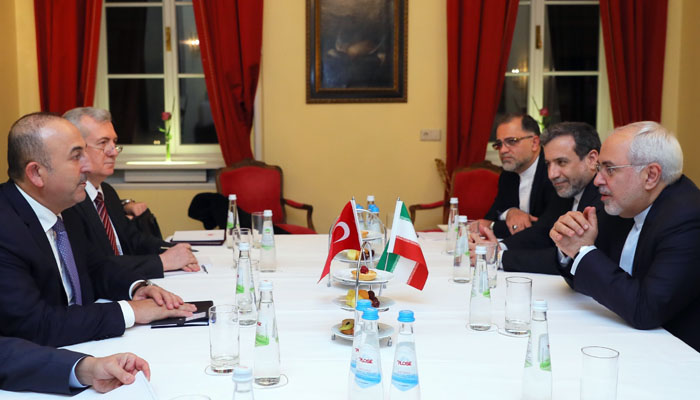Turkish-Iranian relations have been strained over an exchange of words between officials of the two neighboring countries days before the Syrian peace talks in Geneva, which will begin on Thursday.
The exchange began after Turkish Foreign Minister Mevlüt Çavuşoğlu said during a speech at the Munich Security Conference in Germany that Iran should stop pursuing a sectarian policy in its neighborhood and added, “Iran wants to turn Syria and Iraq into Shiite [states].”
Prior to Çavuşoğlu’s remarks made on Feb. 17, Turkish President Recep Tayyip Erdoğan had said during a visit to Bahrain on Feb. 14 that Iran was pursuing “Persian nationalism” in the region.
On Feb. 19, Turkish Prime Minister Binali Yıldırım also said that Iran’s sectarian policy in Syria could cause problems in Turkish-Iranian relations.
In response to Çavuşoğlu and Erdoğan’s remarks, Iranian Foreign Ministry spokesman Bahram Qassemi said late on Feb. 19 that Turkey “should not test Iran’s patience.”
In a statement to Iran’s Tasmin News Agency, Qassemi said, “Those who have immature dreams about rebuilding an empire and have taken meddlesome, illegal and illegitimate measures and supported terrorist groups cannot shirk their responsibility for such moves through a blame game.”
Accusing Turkey of being the cause of the insecurity and instability in the region, Qassemi also called Turkey a “paranoid state.”
Turkey responded to the Iranian Foreign Ministry spokesman’s remarks in a statement by Turkish Foreign Ministry spokesman Hüseyin Müftüoğlu on Feb. 20 saying Iran’s remarks blaming Turkey for the instability in the region is not acceptable as Turkey “does not even hesitate to get into the battlefield to help refugees seeking shelter from crises.”
He added that Iran’s regional policies attract complaints on international platforms and that it should review them instead of putting the blame on other countries criticizing Iran.
Iran, along with Turkey and Syria, sponsored Syrian peace talks held in the Kazakh capital of Astana in the past month. However, the Astana talks shattered hope as the latest round of talks last week failed to even adopt a closing statement due to disagreement between regime and opposition sides.
While the Geneva talks have been at the center of international peace efforts since the Syrian conflict began in 2011, the Astana talks were led by Russia and Turkey after after Russian President Vladimir Putin and his Turkish counterpart, Recep Tayyip Erdoğan, discussed with Kazakh President Nursultan Nazarbayev in December 2016 the possibility of holding a meeting in Astana between the warring parties in the Syrian conflict.
